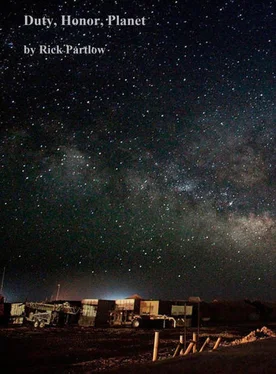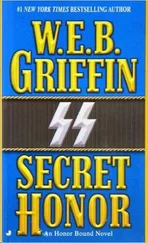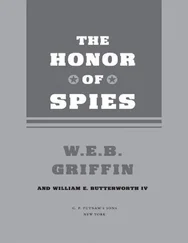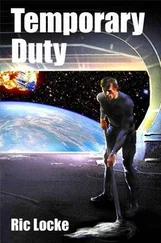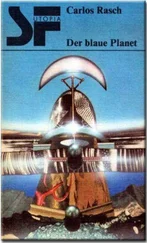“Aren’t you worried that it might adversely affect your upcoming appropriations bill?”
“I don’t have the time to worry about things that won’t happen,” Jameson replied with too much confidence for O’Keefe’s comfort.
“Then to what do I owe the honor of this call?” The Senator tried to mask his uneasiness with sarcasm.
“Talk her out of it, Daniel,” Jameson said simply.
“I’ve already been through this with Space and Security, Mr. President,” O’Keefe sighed. “She’s a grown woman. She has every legal right to go anywhere she wants and, as a representative of the EJA, she has Senate authorization to travel on a government vessel. And you can just bet that she’d need a better reason not to go than to avoid embarrassing your administration. As I would for recommending that she not go.”
“I don’t give a damn about embarrassment, political or otherwise, O’Keefe,” Jameson snapped in an uncharacteristic display of irritation. “We’re talking about your daughter’s life, man.”
“Oh?” O’Keefe cocked an eyebrow. “Can’t your vaunted Marines keep her safe from a few disgruntled emigrants?”
“It’s not the terrorists I’m concerned with. You’re on the Security Committee—you’ve read the reports.”
“What?” Daniel snorted in derision. “That drivel again? I told Secretary Long and I’ll tell you, too, Mr. President, I don’t believe in fairy tales. All that nonsense was structured to push through the funding for your precious Fleet.”
“That ‘nonsense,’ Senator, has claimed five supply ships in the last three years. There’s something out there. And don’t give me your spiel about natural phenomena. Natural phenomena don’t cut open hulls and suck out cargoes, and they don’t steal fusion reactors.”
Daniel shook his head. “Don’t hand me your paranoid delusions, Mr. President. In almost forty years of regular interstellar travel, we’ve discovered no signs of active extraterrestrial intelligence.”
“And precious little of terrestrial intelligence,” Jameson muttered. His shoulders sagged with a heavy sigh. “I had to try,” he said quietly, maybe to himself or maybe to someone off-camera. “I could just have Space pull her travel permit. Maybe I should.”
“You wouldn’t,” O’Keefe said tightly, “and we both know it. It would look like you were covering up something.”
“You think you have all the angles covered.” Jameson’s tone was soft, almost pitying. “Daniel, did you ever take any history in college?”
“Just what was required for a Polisci major,” the Senator replied.
“Back around the beginning of the last century, men quite like you, with much political ambition and many ideals, and very little knowledge of history, watched the rise of Antonov and his Protectorate and called those concerned about it alarmists and saber-rattlers. They very nearly let him and Xiang destroy this planet and cause the extinction of the whole human race.” Jameson’s voice turned hard as a naked atomic pile. “I won’t let that happen again, Daniel, not on my watch. I want you to remember that.”
The President’s image shimmered, and then was gone. O’Keefe frowned uncomfortably, got up from behind his desk and retrieved his glass. Jameson, he told himself, couldn’t have been serious. He was bluffing—he had to be. There was just no other possibility.
O’Keefe looked down at his glass. It was empty. With a sigh, he walked over to the bar and found another bottle of Scotch. It was going to be a long night.
“To hunger for use and to go unused is the worst hunger of all.”
—Lyndon B. Johnson
MacAuliffe Station hung like a child’s toy in high Earth orbit, a great, spinning wheel that was the gateway to space for all civilian traffic. It was brightly lit and brightly colored, a collage of solar collectors and waste heat radiators that reminded McKay of the old pictures he had seen of a 1950’s concept of a space colony.
The slablike bulk of the RFS MacArthur looked somehow out of place orbiting beside it, he thought, watching the scene on the passenger viewscreen of the orbital transfer vehicle from Fleet HQ. The Fleet’s newest and most advanced ship, the Mac was the first of a new generation of starships, built in response to the hidden threat behind the ship disappearances. Its rear end was hugely out of proportion to the main hull, housing the Eysselink drive nacelles and the oversized antimatter power plant that made it the fastest ship in the Fleet, and flanking its main hull were twin weapons pods. The heavily-armored bulbs couched an impressive array of nuclear-pumped lasers, guided missiles and railguns that made it the most powerful weapon ever built by mankind.
And now, McKay reflected ruefully, it was being used as a tour bus for some Senator’s spoiled daughter. What a world.
Settling back in his restraint web, Jason relaxed and watched the MacArthur grow ever larger on the viewscreen as the shuttle approached one of the score of docking collars that lined its right flank. He felt a series of sharp jolts as the maneuvering thrusters kicked the transfer vehicle around to match its airlock to the docking umbilical, and saw the view swing around to show the expanse of MacAuliffe Station. McKay was jerked slightly in his restraints as the shuttle mated with the ship and came to rest in its docking collar.
“We have docked with the MacArthur,” a disembodied voice announced over the cabin’s speakers. “Disembark to your left when the green light comes on and the airlock door opens. Don’t forget to take all carry-on items with you, and to pick up checked luggage at the cargo dock.”
Jason shrugged free of his restraints, popped open the overhead compartment and pulled out the duffle and shoulder bags he had packed for his journey. Threading arms through their straps, he waited impatiently for the other military passengers ahead of him to make their way out of the airlock, then kicked off from his seat and floated gracefully through the open hatchway.
Braking himself against a bulkhead with an outstretched foot, McKay took a moment to orient himself to the “up” and “down” of the docking bay, using the zero-g maneuvering techniques he had received as part of his training. He found an information terminal in a corner, pushed himself over to it and punched up an accommodation listing, searching for his cabin. He discovered that he was billeted in the guest officers’ quarters, a first for him: on the Bradley, he had been quartered with the other Marines, a situation he had preferred.
The layout of the Mac was much like the layout of any other Fleet cruiser he had been on, and he found the lift station with no problem. Officers’ Country was only sparsely inhabited, and McKay guessed that most of them were busy with preparations for departure. He managed to find his way to his cabin without help, keyed the door open and floated inside.
The one-room cabin wasn’t the Hilton, but it was a vast improvement on the shipboard accommodations he was used to. He threw his luggage into a locker, searched out a comstation and punched up the bridge. The image of the junior communications officer came up on the screen, looking somewhat harried.
“Bridge,” the young man said tersely.
“This is Lieutenant McKay reporting on board,” Jason informed him. “Does the Captain want me to report to him in person?”
“Wait one.” The Ensign blacked out the screen, but was back in a heartbeat. “That’s a negative, Lieutenant McKay,” he said, shaking his head. “Captain Bertrand is tied up with preflight prep right now. I do have two messages for you, though. The rest of your team is on board and Colonel Mellanby has directed you to meet with them in Situation Room Six at…” His eyes flickered back to the readout offcamera. “…1500 hours. The other one says that the Marine Reaction Force attached to you has reported and that Gunnery Sergeant Lambert would like to meet with you at your earliest convenience.”
Читать дальше
